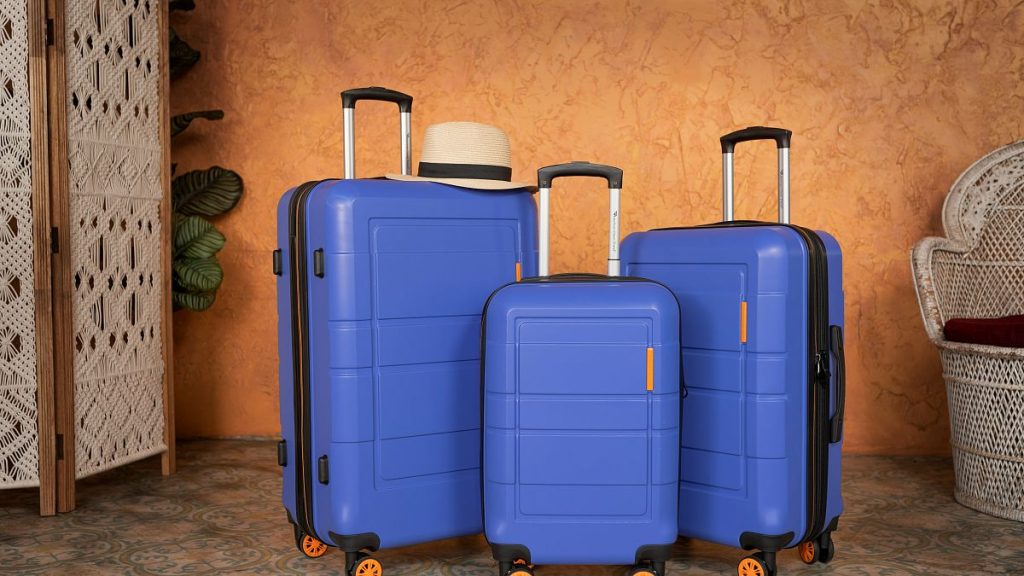Summarize this content to 2000 words in 6 paragraphs
Integrating AirTag technology into baggage tracing should mean you’ll be reunited with your lost luggage faster.
An airline losing your luggage is a surefire way to ruin the start of a holiday. You don’t want to have to be buying emergency clothes when you should be sipping cocktails on the beach instead.But there’s good news that should mean less lost luggage. Lufthansa Group airlines – including Lufthansa, SWISS, Austrian Airlines, Brussels Airlines, and Eurowings – are rolling out a new feature. From now on, they’ll use the Apple AirTag tracking feature to help find lost luggage.How will AirTags help find lost luggage?If you have an AirTag in your bag, the airlines will let you share the location of the Tag with them, making for an easy way to show them that your bag hasn’t arrived at its destination.Apple has made it even easier by introducing a feature that lets AirTag and FindMy network users generate a link to share their item’s location. Airlines introduce improved baggage tracking systems“Thanks to our app and website, passengers can now find solutions quickly and easily in the event of irregularities,” says Oliver Schmitt, Head of the Lufthansa Group Digital Hangar. Schmitt explains that integrating customers’ AirTag data has already improved baggage tracing. This allows airlines to track bags more efficiently and quickly, an easy win for customer service.”Customers want bag tracking,” says Tero Taskila, CEO of beOnd, a Maldivian airline headquartered in Dubai, citing the airline’s post-flight surveys. “We plan to implement Apple AirTag in the second half of 2025 as it’s relatively simple for airlines to integrate this technology.” How do AirTags work?AirTags are like tiny digital detectives for any item you want to keep track of. About the size of a large coin, they send out a Bluetooth signal that nearby devices in Apple’s Find My network can detect. These devices then relay the location of your AirTag to iCloud, allowing you to check its whereabouts in real time on a map via the Find My app.Savvy travellers have been using AirTags to track their luggage for a while now, often beating airlines to the punch when bags go missing.Social media is full of amusing stories of passengers playing detective – spotting their suitcase at the wrong airport or even proving to an airline that their ‘lost’ bag is actually sitting in a storage room just down the hall.Airlines might be less likely to lose your luggage this summerFrom 2007 to 2022, baggage mishandling decreased by almost 60 per cent, according to Monika Mejstrikova, IATA’s Director of Ground Operations.In 2022, there was a surge in mishandled bags, mainly due to the sudden resurgence of travel after Covid travel restrictions, staff shortages and the unpreparedness of the aviation industry.According to statistics from SITA, which handles IT systems for 90 percent of airlines, the number of bags that were delayed, lost, or damaged rose from 4.35 in 2021 to 7.6 pieces of luggage per 1,000 passengers in 2022.Airlines embracing better technology and integrating AirTag tracking should mean a bag is reunited faster with its owner if it does get lost.Advice on what to do to reduce the chance of losing checked-in luggageAccording to IATA, 99 per cent of all baggage travels with the passenger as planned, and the vast majority of mishandled bags are returned to the passenger within 48 hours.Mishandled bags are most commonly due to tight flight transfer times, often caused by air traffic control delays. Sometimes, there’s just not enough time to get your bag onto the next flight.Always use a traditional luggage tag alongside your AirTag and snap a quick photo of your suitcase before you fly. A clear image and visible contact details can help airline staff quickly identify and return your bag.If your bag doesn’t show up at baggage reclaim, report it at the airport before you leave and make sure you get details of who to contact if your baggage is not sent on to you.
Keep Reading
Subscribe to Updates
Get the latest creative news from FooBar about art, design and business.
© 2026 Globe Timeline. All Rights Reserved.









